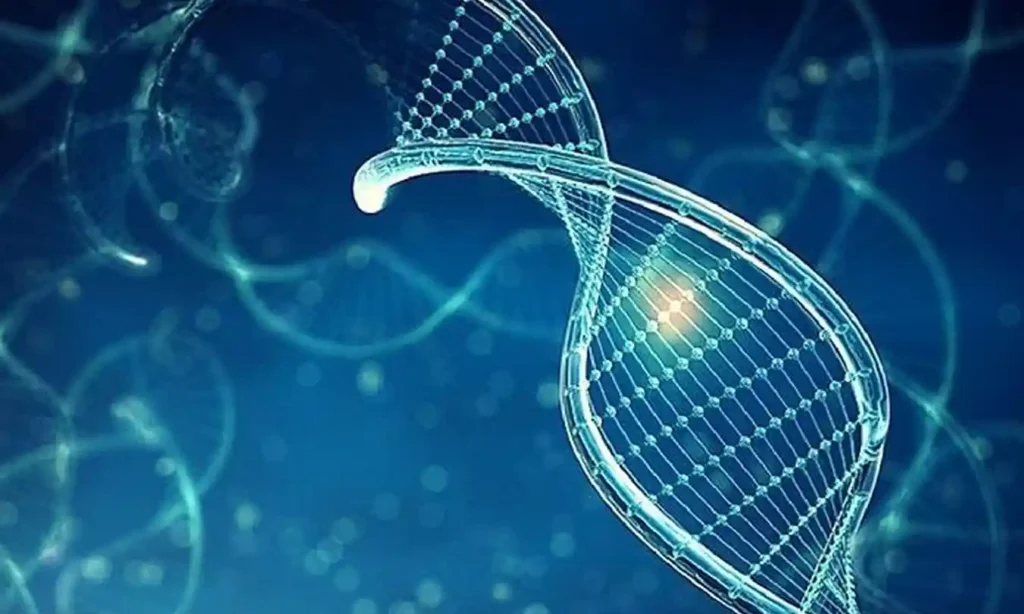What is Biodecoding and what is its basis?
Biodecoding
Understanding the Emotional Roots of Disease
Deciphering the Language of the Body
Biodecoding is a holistic approach to understanding and treating illness that delves into the emotional and psychological factors underlying physical symptoms. Originating from the idea that unresolved emotional conflicts can manifest as disease in the body, biodecoding seeks to decode the messages of the body’s symptoms and address the root causes rather than merely treating the symptoms themselves. This approach is based on the premise that the body is constantly communicating with us, and symptoms are not just random occurrences but meaningful signals that reflect deeper issues within our psyche.
Much like how humans communicate through language, gestures, and expressions to convey their inner thoughts and emotions, the body communicates through symptoms to express underlying emotional conflicts. Just as understanding the context and subtext of human communication can lead to deeper insights and resolutions, decoding the language of the body in biodecoding can unveil hidden emotional patterns and facilitate healing.
While there is anecdotal evidence of individuals experiencing improvements in their health and well-being through biodecoding, scientific validation of its efficacy remains limited. A study published in the Journal of Psychosomatic Research found that emotional suppression and unresolved conflicts were associated with increased risk of physical illness, suggesting a potential link between emotional factors and disease manifestation.
“Healing begins when we listen to the whispers of our bodies and address the underlying emotions they express.”
Dr. Christian Flèche
“True health is not merely the absence of disease, but the harmony of mind, body, and spirit.”
Anne Ancelin Schützenberger
Practice mindfulness techniques to cultivate self-awareness and emotional intelligence.
Engage in regular journaling or therapy sessions to explore and address underlying emotional conflicts.
Adopt a holistic approach to health that integrates physical, emotional, and spiritual well-being.
Sources:
- Flèche, C. (2011). The Biogenealogy Sourcebook: Healing the Body by Resolving Traumas of the Past. North Atlantic Books.
- Schützenberger, A. A. (1998). The Ancestor Syndrome: Transgenerational Psychotherapy and the Hidden Links in the Family Tree. Routledge.
In contrast to conventional allopathic medicine, which often focuses solely on treating the physical symptoms of illness with medications or procedures, biodecoding takes a more holistic approach by addressing the underlying emotional and psychological factors contributing to disease. While allopathic medicine certainly has its merits in acute care and emergency situations, biodecoding offers a complementary perspective that acknowledges the interconnectedness of mind, body, and spirit in promoting overall health and healing.
The Garden of the Soul
Imagine your body as a garden, each symptom or illness as a weed sprouting from the soil of your subconscious mind. Instead of merely cutting off the weeds (treating the symptoms), biodecoding invites you to dig deeper, nourish the soil (address the emotional roots), and cultivate a flourishing garden of health and vitality.
What is the difference between Biodecoding and conventional medicine?
Understanding the Contrasts
Biodecoding vs. Conventional Medicine
Contrasting Philosophies of Healing
Biodecoding and conventional medicine represent two distinct approaches to understanding and treating illness. Conventional medicine, rooted in scientific research and evidence-based practices, typically focuses on diagnosing and treating physical symptoms using medications, surgeries, and other medical interventions. In contrast, biodecoding delves into the emotional and psychological factors underlying illness, viewing symptoms as expressions of deeper emotional conflicts.
Just as humans may approach problem-solving from different perspectives, conventional medicine and biodecoding offer distinct lenses through which to view health and illness. Conventional medicine tends to prioritize the physical aspect of health, often overlooking the emotional and psychological components. On the other hand, biodecoding acknowledges the interconnectedness of mind, body, and spirit, recognizing that emotional well-being is integral to overall health.
“Health is not just the absence of disease; it is the harmony of mind, body, and spirit.”
Hippocrates
“The body is the canvas upon which our emotions are painted.”
Carl Jung
While conventional medicine relies heavily on scientific research to inform medical practices, biodecoding draws more from anecdotal evidence and personal experiences. However, there is growing interest in exploring the connections between emotional well-being and physical health within scientific communities. A study published in the Journal of Psychosomatic Research found that individuals with unresolved emotional conflicts were more likely to experience physical symptoms, suggesting a potential link between emotional factors and disease manifestation.
“True healing occurs when we address the root causes of illness, not just the symptoms.”
Dr. Ryke Geerd Hamer
“Embrace the wisdom of your body; it holds the keys to your health and healing.”
Dr. Christian Flèche
Engage in practices that promote emotional self-awareness, such as mindfulness meditation or therapy.
Take a holistic approach to health by addressing not only physical symptoms but also underlying emotional issues.
Cultivate a supportive environment that encourages open communication and emotional expression.
Sources:
- Hamer, R. G. (2005). The Five Biological Laws: The Story of Dr. Ryke Geerd Hamer. Amici di Dirk.
- Flèche, C. (2011). The Biogenealogy Sourcebook: Healing the Body by Resolving Traumas of the Past. North Atlantic Books.
In conventional medicine, the focus is primarily on treating the physical symptoms of illness using medications, surgeries, and other medical interventions. Treatment plans are often standardized based on established protocols and clinical guidelines. In contrast, biodecoding looks beyond the surface symptoms to identify and address the underlying emotional conflicts contributing to illness. This approach emphasizes personalized care and seeks to empower individuals to take an active role in their healing journey.
The Symphony of Health
Imagine your body as a symphony orchestra, with each instrument representing a different aspect of your health—physical, emotional, and spiritual. Conventional medicine may focus solely on tuning one instrument (physical health) while ignoring the discordant notes from the others. Biodecoding, however, conducts the entire symphony, harmonizing the diverse elements of health to create a masterpiece of well-being.
How do emotions relate to health in Biodecoding?
The Interplay of Emotions and Health in Biodecoding
Exploring the Emotional Landscape of Health
In biodecoding, emotions are viewed as integral components of health, intricately intertwined with physical well-being. Unlike conventional medicine, which often focuses solely on treating the physical symptoms of illness, biodecoding recognizes that emotional experiences and unresolved conflicts can manifest in the body as symptoms or disease. By understanding and addressing the emotional roots of illness, biodecoding seeks to promote holistic healing and overall well-being.
Just as human behavior is influenced by a complex interplay of thoughts, feelings, and experiences, the body’s health is similarly influenced by emotional states. Emotions serve as signals, conveying valuable information about our inner landscape and alerting us to areas of imbalance or discord. In biodecoding, symptoms are seen as expressions of underlying emotional conflicts, much like how our actions and behaviors can reveal deeper emotional patterns.
“To heal the body, we must first heal the soul.”
Plato
“The greatest glory in living lies not in never falling, but in rising every time we fall.”
Confucius
While the concept of emotions influencing health is not new, scientific research has increasingly recognized the impact of emotional well-being on physical health outcomes. A study published in the journal Psychosomatic Medicine found that individuals with higher levels of emotional well-being were less likely to develop chronic diseases and experienced better overall health outcomes. This underscores the importance of addressing emotional factors in promoting health and preventing illness.
“Embrace your emotions as messengers of wisdom; they hold the key to unlocking your true health potential.”
Dr. Claude Sabbah
“True healing occurs when we honor the emotional truths held within our bodies.”
Dr. Martine Faure-Alderson
Practice emotional self-awareness through mindfulness meditation, journaling, or therapy.
Cultivate healthy emotional expression by creating a supportive environment for open communication and sharing.
Explore the underlying emotional roots of physical symptoms through techniques such as biodecoding or psychosomatic therapy.
Sources:
- Sabbah, C. (2013). The Biodecoding the Disease: The Bio-emotional Approach to Health. Editions Quintessence.
- Faure-Alderson, M. (2007). The Power of Your Emotions: How to Transform Emotions into Lifelong Health and Well-Being. North Atlantic Books.
In conventional medicine, the relationship between emotions and health is often overlooked or dismissed, with a primary focus on treating physical symptoms using medications or procedures. Treatment plans may not address the emotional factors contributing to illness, leading to incomplete healing or symptom recurrence. In contrast, biodecoding recognizes the profound influence of emotions on health and emphasizes the importance of addressing emotional conflicts to achieve lasting wellness.
The River of Emotions
Imagine your emotions as a flowing river, carrying the currents of your thoughts, feelings, and experiences. Just as a river can nourish the land or cause flooding when its flow is blocked, emotions can either support or hinder your health journey. Biodecoding acts as a guide, helping you navigate the twists and turns of your emotional river, allowing for smooth sailing toward greater health and vitality.
What is a biological conflict in Biodecoding?
Understanding Biological Conflicts in Biodecoding
Unraveling the Roots of Biological Conflicts
Biological conflicts, in the context of biodecoding, refer to the emotional triggers or unresolved issues that can manifest in the body as physical symptoms or illness. These conflicts may stem from past traumas, stressful experiences, or deeply ingrained beliefs and patterns. In biodecoding, the emphasis is on identifying and addressing these underlying conflicts to facilitate healing on both emotional and physical levels.
Just as unresolved conflicts or emotional triggers can influence human behavior, biological conflicts can impact the body’s functioning and health. Just as a person may react to a past trauma with fear, anxiety, or avoidance, the body may respond to a biological conflict with symptoms such as pain, inflammation, or dysfunction. By understanding the parallels between emotional responses and physical symptoms, biodecoding seeks to uncover the root causes of illness and promote holistic healing.
“The mind and body are not separate entities, but intertwined aspects of our being.”
Rene Descartes
“The health of the soul reflects in the health of the body, and vice versa.”
Aristotle
Scientific research exploring the connection between emotional well-being and physical health supports the concept of biological conflicts in biodecoding. A study published in the Journal of Psychosomatic Research found that individuals with higher levels of emotional distress were more likely to experience physical symptoms and health problems. This highlights the importance of addressing emotional factors in promoting overall well-being and preventing illness.
“Your body speaks the language of your emotions; listen carefully, for it holds the keys to your healing.”
Dr. Claude Sabbah
“Healing begins when we acknowledge and address the emotional truths held within our bodies.”
Dr. Martine Faure-Alderson
Practice self-reflection and introspection to identify potential biological conflicts or emotional triggers.
Engage in therapeutic techniques such as journaling, meditation, or therapy to process and resolve unresolved emotional issues.
Cultivate a supportive environment that encourages emotional expression and open communication.
Sources:
- Sabbah, C. (2013). The Biodecoding the Disease: The Bio-emotional Approach to Health. Editions Quintessence.
- Faure-Alderson, M. (2007). The Power of Your Emotions: How to Transform Emotions into Lifelong Health and Well-Being. North Atlantic Books.
In conventional medicine, the focus is primarily on treating the physical symptoms of illness using medications or procedures. Treatment plans may not address the emotional factors contributing to illness, leading to incomplete healing or symptom recurrence. In contrast, biodecoding recognizes the profound influence of emotions on health and emphasizes the importance of addressing biological conflicts to achieve lasting wellness.
The Garden of Emotions
Imagine your emotions as seeds planted in the garden of your mind. When nourished and tended to with care, they can blossom into beautiful flowers of joy, love, and fulfillment. However, if left unattended or suppressed, they may grow into weeds of fear, anger, or resentment, choking the life out of the garden. In biodecoding, the focus is on cultivating emotional awareness and addressing biological conflicts to create a garden of inner harmony and well-being.




